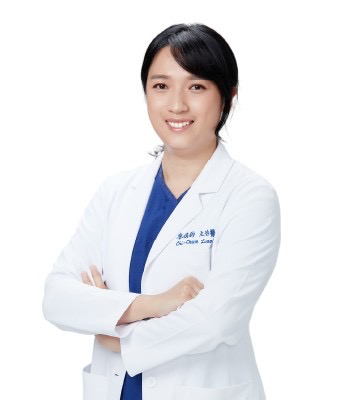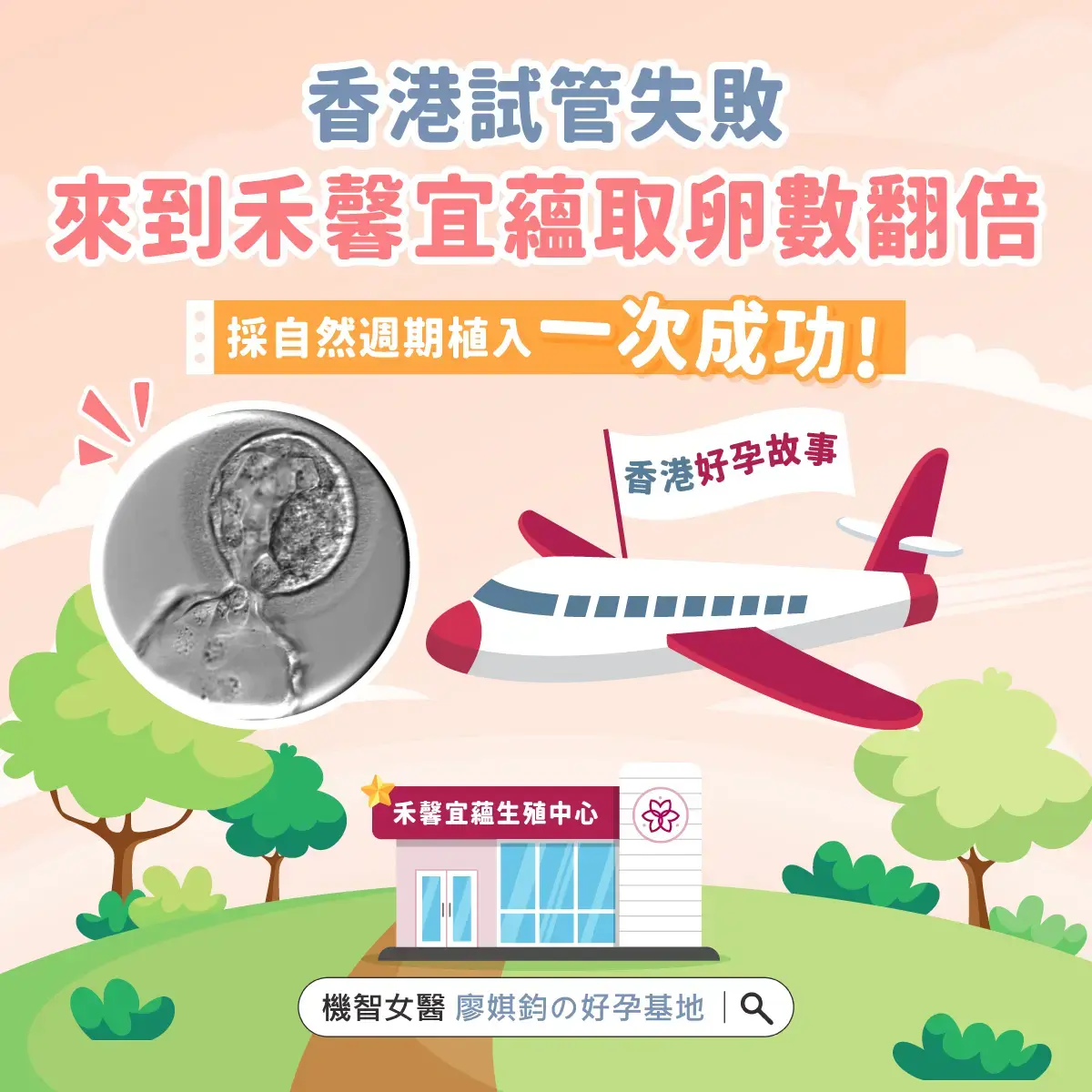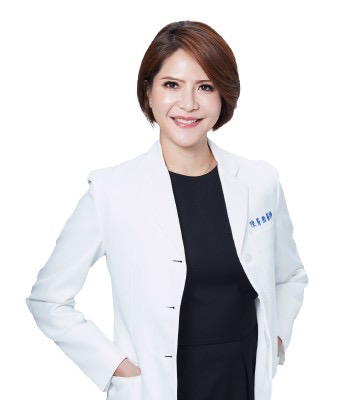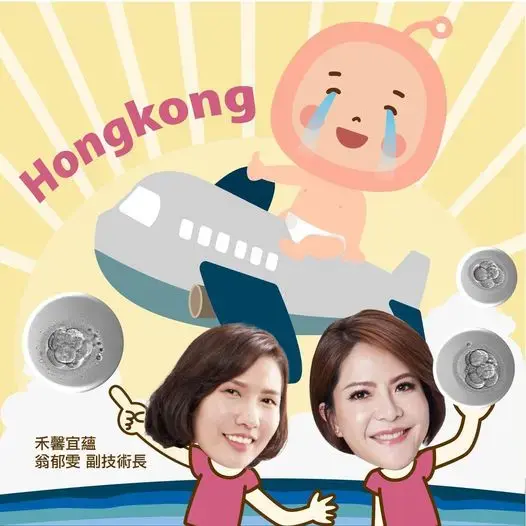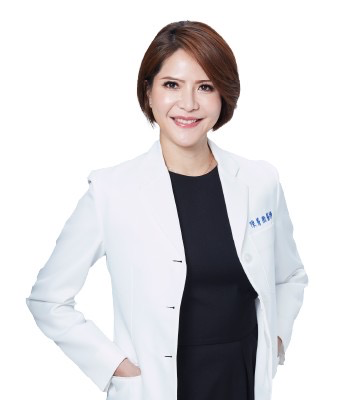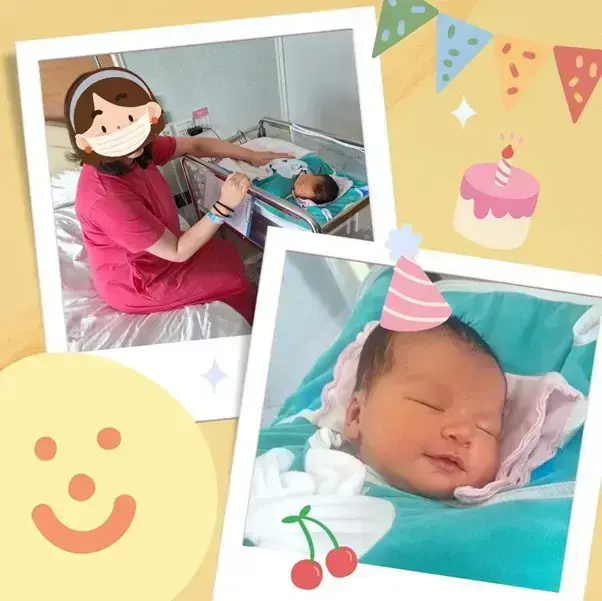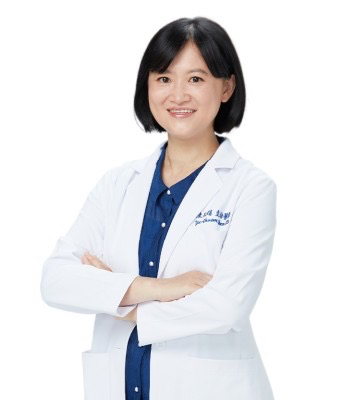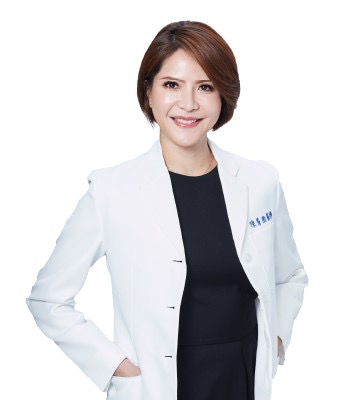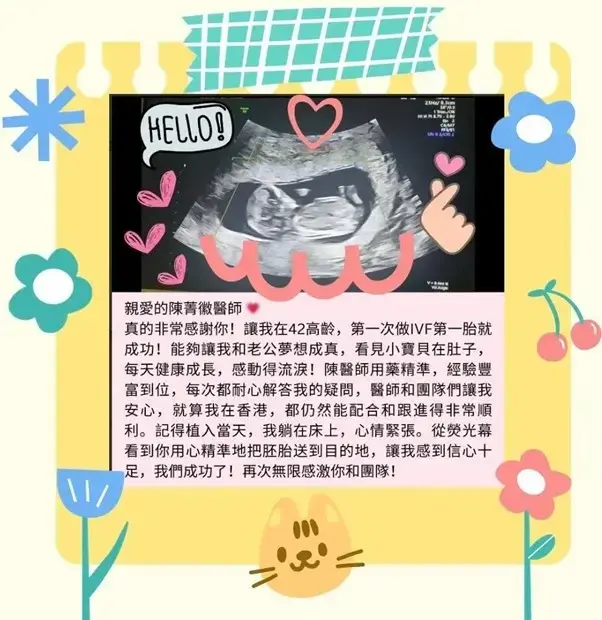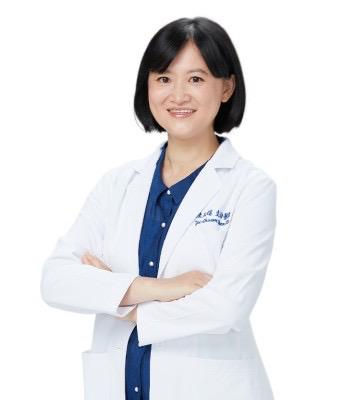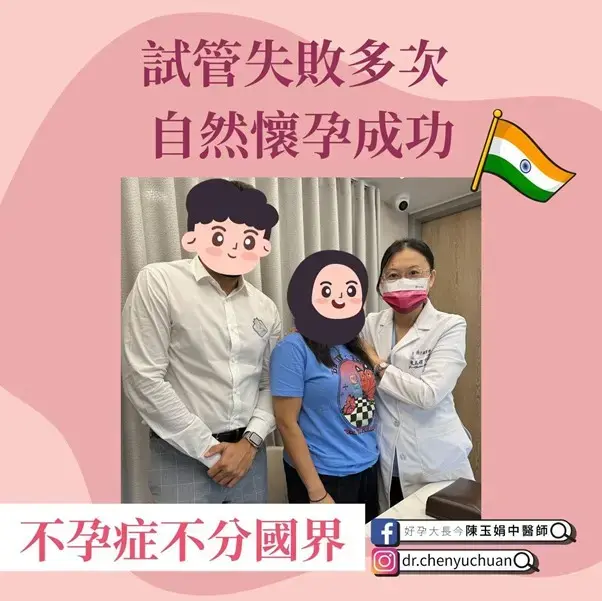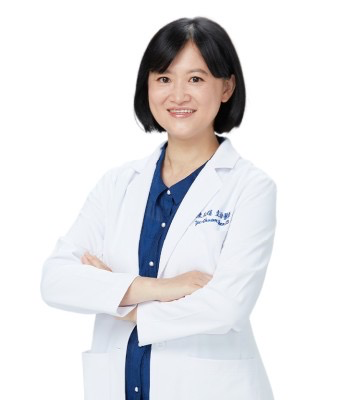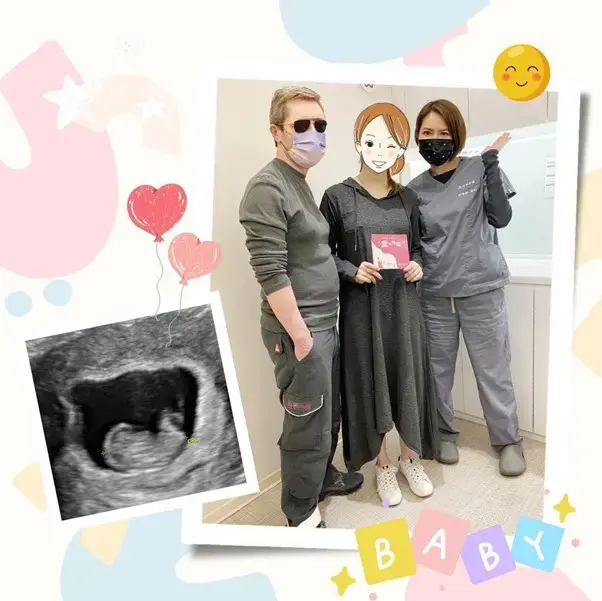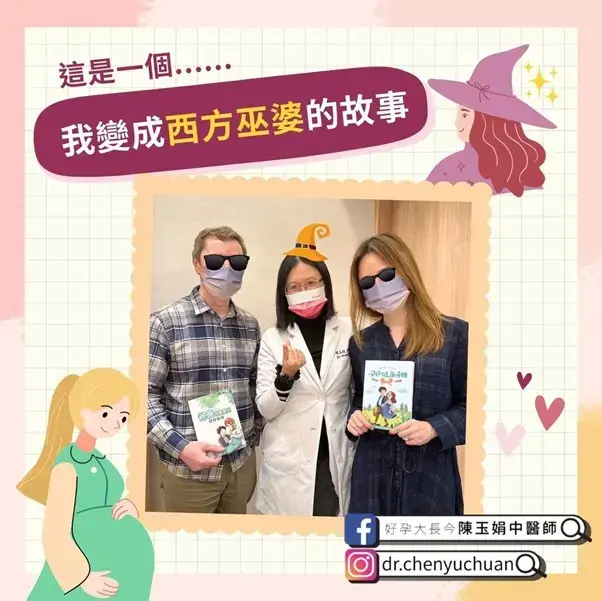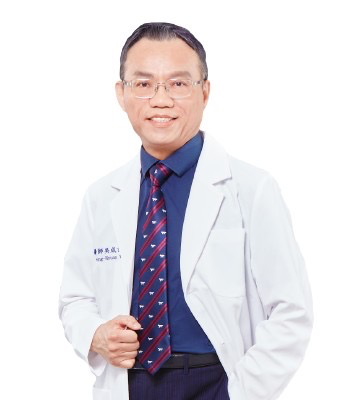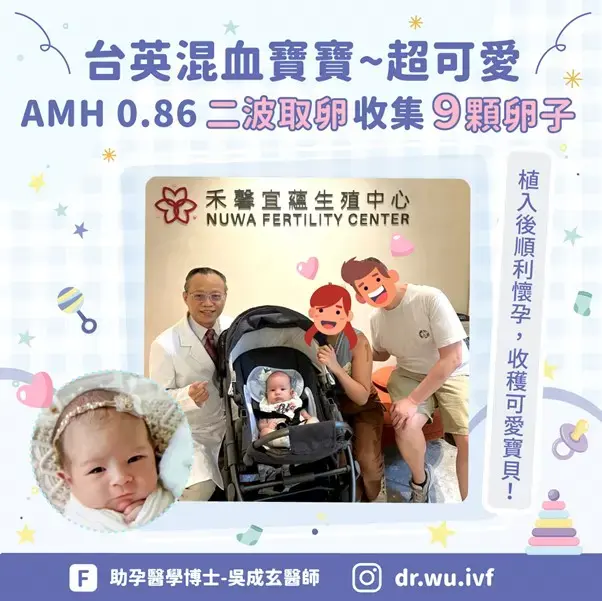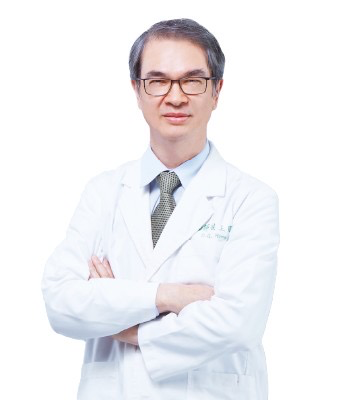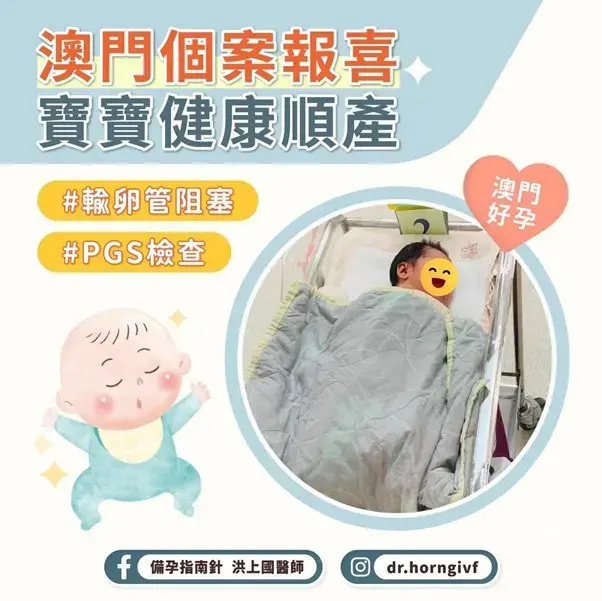A Journey from Switzerland: Overcoming Challenges to Welcome a BabyThis is a heartwarming success story from Switzerland. Xiao Lan was born in Taiwan but later immigrated abroad. At the age of 31, she met her husband, a Scottish man 23 years her senior, and after getting married, they moved to Switzerland. After two years of unsuccessful attempts to conceive naturally, Xiao Lan began monitoring her basal body temperature and using ovulation test strips to try to get pregnant.
Uterine Fibroids, Blocked Fallopian Tubes, and Endometriosis: Multiple Failed IUI Attempts
At 35, still with no luck, she decided to ask her general practitioner in Switzerland for a referral to an OB-GYN. The initial diagnosis suggested that her large fibroids were causing infertility, but the clinic couldn’t handle the case and referred her to a reproductive medicine department at a teaching hospital. After waiting for six months to be seen, the doctors discovered that not only were her fibroids large and numerous, but they were also blocking her fallopian tubes. Surgery was necessary, and only traditional open surgery could be performed. During the height of the pandemic, without any family to accompany her, she went through the surgery alone. The largest fibroid weighed almost a kilogram, and there were numerous smaller ones. During the surgery, they also discovered endometriosis, which extended the planned 5 cm incision to a 17 cm irregular cut. Severe postoperative adhesions were expected.
Six months post-surgery, just as she turned 36, Xiao Lan actively sought treatment at the reproductive department. However, the Swiss doctors considered her young for IVF since she was under 40, so they recommended she try ovulation induction and timed intercourse. After a year and a half of injections, tracking ovulation, failures, and three additional failed IUIs, she was still not pregnant.
Seeking Help in Taiwan at 38: Starting IVF Treatment with Dr. Ching-Hui Chen
After many setbacks, she reached the age of 38. Earlier this year, Xiao Lan and her husband decided to start IVF and chose to return to Taiwan’s NUWA Fertility Center for treatment. They retrieved 16 eggs, 12 of which were fertilized. By day 5, 6 embryos remained, 5 of which underwent PGS testing. Only one was normal, and another showed low-level mosaicism, indicating poor egg quality. In June, they transferred the normal embryo and returned to Switzerland, but unfortunately, Xiao Lan got her period the day before the pregnancy test.
After resting for a month, she decided to try another round of IVF at a renowned private hospital in Switzerland. In late July, she began another cycle, retrieving 8 eggs, 6 of which fertilized. By day 5, only 3 embryos remained, and all were sent for PGS testing, with only one coming back normal.
In late September, they transferred the normal embryo, but it failed again in early October. At this time, Xiao Lan’s husband happened to be on a business trip to Taiwan, so she immediately returned to consult Dr. Ching-Hui Chen, hoping to start a new treatment cycle. Dr. Chen suggested that after two consecutive years of injections, Xiao Lan should take a break and combine traditional Chinese medicine (TCM) treatments. He recommended using a natural cycle to transfer the low-level mosaic embryo that had been frozen earlier in the year.
Improved Health with TCM Treatment: Successful Embryo Transfer
At NUWA TCM Clinic, Dr. Yu-Chuan Chen listened to Xiao Lan’s story and began a thorough consultation. Xiao Lan mentioned she was very sensitive to heat, often wearing short sleeves in 15°C weather, yet she suffered from cold hands and feet. She had been dealing with stomach issues since the age of 25 and had been taking PPIs for over a decade. She was also diagnosed with hypertension at 30 and had been on antihypertensive medication, along with other medications for autonomic nervous system disorders and adenomyosis. Dr. Chen determined that Xiao Lan’s condition was a mix of internal heat and cold, with underlying deficiencies and secondary excess, making embryo transfer in just one month a significant challenge.
Xiao Lan visited the clinic almost every two days. Fortunately, the medical costs in Taiwan were relatively low compared to Switzerland, where a 30-minute acupuncture session could cost as much as NT$8,000! With combined acupuncture and herbal treatment, Xiao Lan finally experienced a sense of coldness after two weeks, and her gastrointestinal motility improved, prompting her husband to join the treatment as well.
A week later, her endometrial thickness and hormone levels were much better than before the previous two embryo transfers, so Dr. Chen decided to proceed with the embryo transfer.
Managing Pregnancy with TCM and Acupuncture
Given her previous training at the fertility clinic, Xiao Lan knew that she had to be extremely cautious throughout the pregnancy. Even after detecting the baby’s heartbeat, they needed to ensure the placenta was well-developed and the baby had a safe and comfortable environment before they could consider it a successful milestone. A positive pregnancy test was only the first step. With her high blood pressure and adenomyosis, Xiao Lan was considered a high-risk pregnancy case. Post-transfer, she faced numerous issues, including chronic insomnia, sleep cycle disturbances, headaches, bloating, edema, hemorrhoids, high blood pressure, and severe bleeding. She visited the clinic almost daily for acupuncture and medication adjustments until early this month, when her placenta finally stabilized, and her condition improved. While not completely satisfied, she was hopeful of safely getting through the second trimester. After the Lunar New Year, once her husband’s work assignment in Taiwan ended, they planned to return to Switzerland to await the birth. We wish them a safe and smooth journey ahead.
A Little Anecdote
Since her husband doesn’t speak Chinese, he often had trouble remembering who was who in Taiwan unless they were given easy-to-remember nicknames. Xiao Lan shared that initially, they referred to Dr. Yu-Chuan Chen as “the acupuncture doctor,” but her husband thought she was more like a “wicked witch” because her pulse diagnoses and explanations of medication reactions were so accurate. Now, they both affectionately call Dr. Chen “the witch.”
Ongoing Care and a Surprising Birth Experience
Following Xiao Lan’s story, she continued to update Dr. Chen every week with pregnancy photos and progress reports after returning to Switzerland in late March. Although she occasionally took Chinese medicine, she had to be hospitalized for pregnancy complications, but the Swiss doctors insisted on waiting until 37 weeks and 2 days before performing a C-section.
Each week after Tuesday, if Xiao Lan didn’t send an update, Dr. Chen would check in to make sure everything was okay. Finally, the time came for mother and child to meet. Despite being under local anesthesia, Xiao Lan felt excruciating pain when the doctor made the incision, causing her blood pressure to spike.
It turned out that the doctors hadn’t anticipated her high tolerance to anesthesia due to long-term medication use. They had to switch to general anesthesia urgently, and Xiao Lan was sent to the ICU post-surgery, giving her husband a scare.
Postpartum Recovery with the Help of Friends
Despite her high blood pressure, Xiao Lan was discharged with her baby and went home to rest. Her close friend from Taiwan also planned to fly to Switzerland to help with postpartum care. In Taiwan, doctors would likely not have discharged her so soon! Taiwanese mothers have various postpartum care options, which many women living abroad cannot enjoy.
Unfortunately, Xiao Lan’s husband, who was initially set to be transferred back to Taiwan for work by the end of the year, might not be able to return due to a colleague who actively sought the position. It looks like they may have to find another opportunity to return to Taiwan as a family.
Medical Differences Between Taiwan and Switzerland
Switzerland: Xiao Lan received daily progesterone injections. After the first failed IVF cycle, the doctor added heparin, leaving her belly riddled with needle marks, yet the cycle ended in disappointment. At the county hospital in Switzerland, an eight-hour surgery for endometriosis was unsuccessful, leaving her husband pacing outside the operating room, regretting not returning to Taiwan for the procedure.
Taiwan: In Taiwan, a natural cycle embryo transfer method not used by Swiss doctors was adopted. It required fewer medications, relying on the body's natural hormones to support embryo implantation.
TCM and acupuncture are relatively affordable in Taiwan, allowing for comprehensive treatment and body conditioning.
Not only did Taiwan use different medications, embryo culture methods, and transfer techniques compared to Switzerland, but the familiar environment, accessible medical care, and cultural familiarity also played a role. Xiao Lan and her husband did not have high hopes initially, but with the support of both Western and Chinese medicine at NUWA, they successfully conceived and welcomed their baby into the world.





